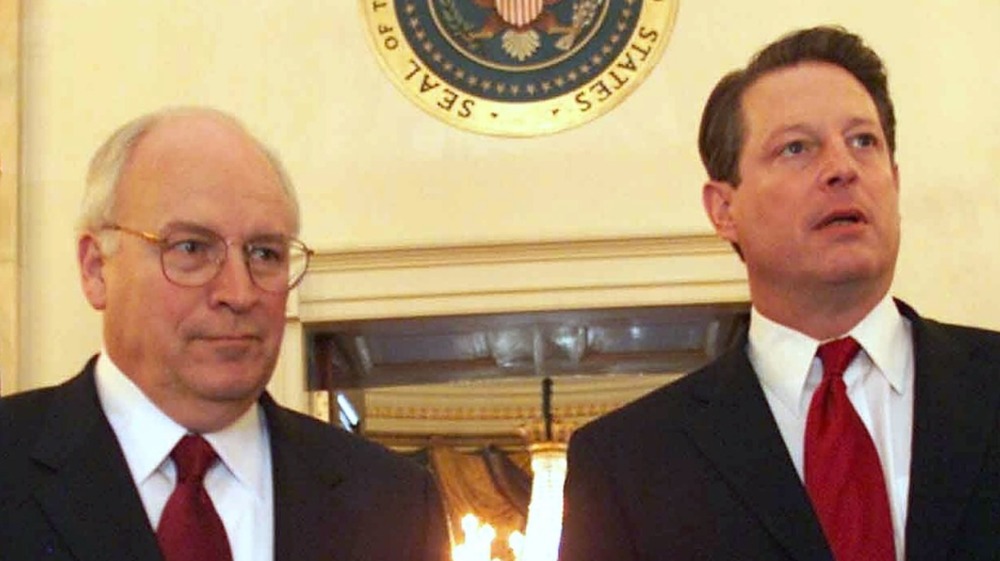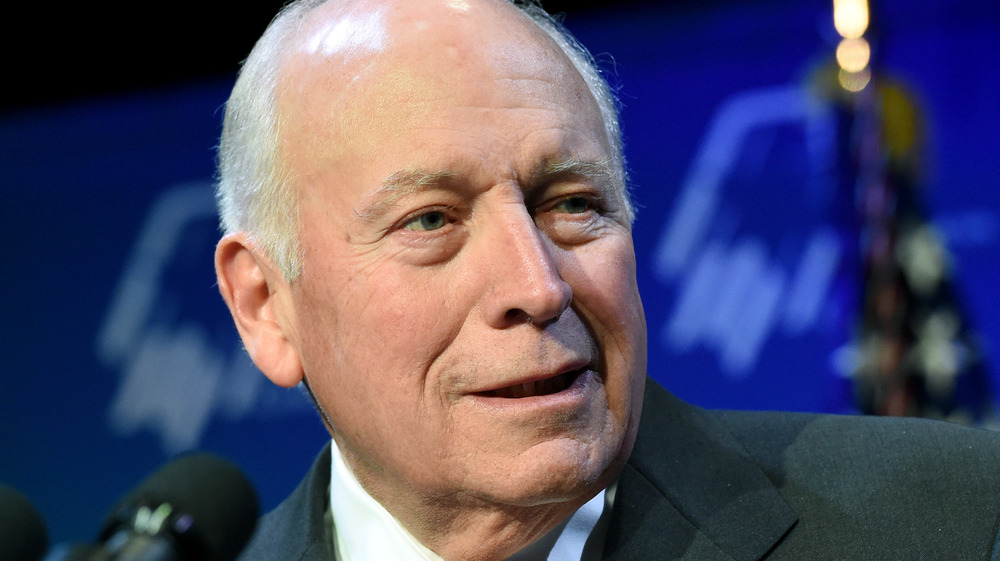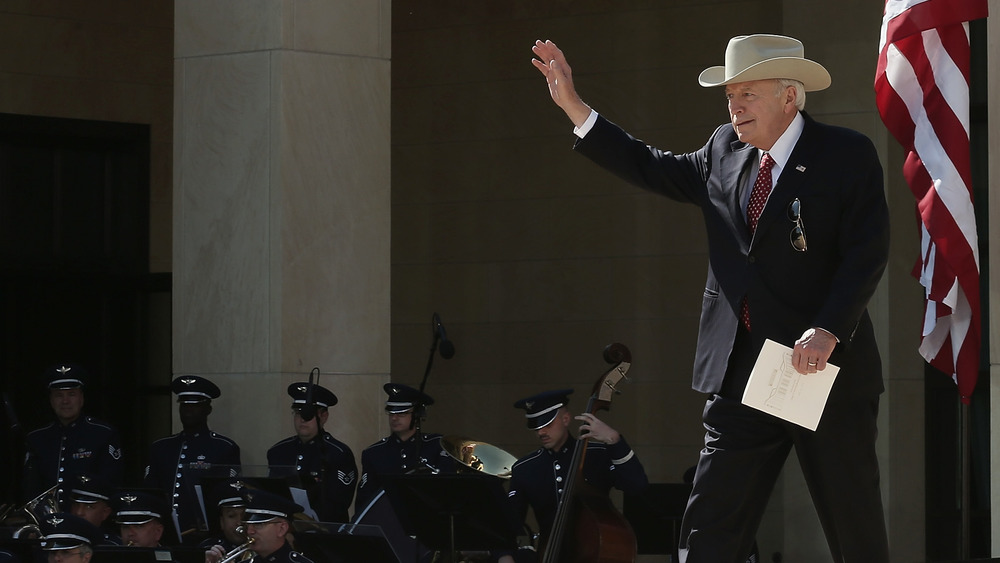The Most Powerful Vice President In US History
While many people are familiar with the powerful responsibilities of a United States president, far fewer people are aware of the vice president's responsibilities as second-in-command. According to US News and World Report, per the U.S. Constitution, the VP isn't brought up all that much. Article I, Section 3 mentions how the vice president is needed to cast a tie-breaking vote in the Senate; Article II, Section 1 states the VP can take over as president due to "Death, Resignation, or Inability to discharge the Powers and Duties of the said Office"; and Article II, Section 4 states that vice presidents can also be "removed from Office on Impeachment for, and Conviction of, Treason, Bribery, or other high Crimes and Misdemeanors." If that doesn't sound like much to you, you're not alone. John Adams, the first U.S. vice president, once described the vice presidency as "the most insignificant Office that ever the Invention of Man contrived or his Imagination conceived."
However, the job of vice president also has lots of flexibility, and certain people who took its office also took the job very seriously — some even taking on power that rivaled that of the president. Among all the vice presidents, many would agree that Vice President Dick Cheney was the most powerful of all. "Vice President Cheney has been the most powerful vice president that we've ever had," said Joel Goldstein, author of The Modern American Vice Presidency, per NPR.
Vice President Dick Cheney
While President George W. Bush was in office from January 20, 2001–January 20, 2009, Vice President Cheney was busy behind the scenes helping shape the nation. Even before taking office, Cheney went right to work organizing the transition team while the recount for the 2000 election was being handled in court, per NPR. Cheney became the chief operating officer, suppressing certain information and narrowing down the details as Bush would make the final decisions.
Even before becoming Bush's vice president, Cheney was quick to take charge and rise among the ranks in different presidential administrations. The Wyoming native previously worked for President Richard Nixon in 1969, served as President Gerald Ford's chief of staff in the late '70s, and became the secretary of defense for President George H.W. Bush in 1989, per Biography. It's fair to say that Cheney had a good amount of experience, and time spent observing and working for other presidents helped give him the reassurance to assert more control as vice president.
During 9/11, Cheney advised President Bush not to return to Washington, while he made sure congressional leaders were protected, per the Senate's Official Website. The September 11 attacks made the war on terrorism the most important priority to President Bush, eventually involving Cheney in the highest levels of national security. Biography says that Cheney deepened the power of both the executive branch and vice presidency itself. Cheney was known for sticking to his guns and not regretting his decisions, regardless of public scrutiny.
Vice President Cheney's power is challenged
According to The New York Review of Books, posted at The Nation, Cheney told filmmaker R.J. Cutler: "I thought the best way to get on with my life and my career was to do what I thought was right. I did what I did, it's all on the public record, and I feel very good about it."
According to NPR, Cheney's influence on the war on terror also led to setting up Guantanamo, authorizing waterboarding and other questionable interrogation strategies, and pushing laws that spied on Americans, such as the Patriot Act. Cheney believed such policies were for the good of the country.
During Bush's first term, Cheney was able to prevent negotiations with North Korea, but during the second term, Bush negotiated a nuclear weapons deal. Bush also made a decision that countered Cheney's when he refused to give bombs to the Israelis for use against Iran, per NPR. Cheney's influence slowly decreased as President Bush became more confident in his own abilities.
During the 2008 presidential campaign, Cheney's model for vice president was unpopular among candidates. Senator John McCain, the Republican presidential nominee, wanted the vice president's job to go back to the way it was before Cheney was in office, so that "everybody understood that there's only one president," per the Senate's Official Website. Reuters reported in 2008 that now-President Joe Biden, who served as Vice President under President Barack Obama, said Cheney was "the most dangerous vice president" in American history.


